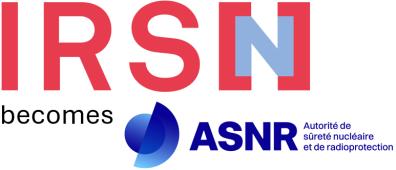The research conducted at IRSN is “mission oriented” and, by its very nature, multidisciplinary. Its purpose is not only, like all research, to acquire new scientific knowledge but also to diversify or improve the technical applications needed to manage risks and contribute to the development of the Institute’s wealth of expertise.
Consequently, research projects are defined, from the outset, as a function of the Institute’s current or future needs to maintain its expertise; these requirements are themselves identified as such through field studies, the result of non-resolved recurring questions, or because it is reasonable to think that the development of nuclear or radiological techniques, combined with more demanding safety requirements, will necessarily lead to new questions being raised.
Conducted over more or less lengthy periods, these research programmes tie in with IRSN’s long and medium term plan (PMLT) for major research programmes.
IRSN’s research organisation is split into three Directions.
